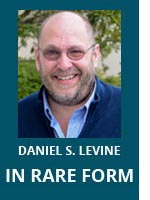 The first thing Hilary Savoie did when she landed in Barcelona for a conference in January 2023, was board a train to take a one-hour ride to visit Nadia Bilous and her family.
The first thing Hilary Savoie did when she landed in Barcelona for a conference in January 2023, was board a train to take a one-hour ride to visit Nadia Bilous and her family.
Savoie, director of community engagement and communication for Neurvati Neurosciences and the mother of a daughter with a rare suspected genetic neurodevelopmental condition, had never met Bilous, but they had spoken many times. Even though the two had limited ability to converse as neither was fluent in a common language, Savoie said her visit with Bilous was one of the most emotional experiences of her life. For virtually the entire five-hour visit, the two remained in physical contact as Bilous held Savoie’s hand or touched her arm.
When Savoie returned to Spain for another conference, she again visited Bilous, who insisted on making her dinner. Bilous had been trying to speak more English but had difficulty expressing herself and resorted to gestures. She touched her hand to her heart and pointed to Savoie’s heart and indicated that there was a string that connected them.
“That was the most apt way to explain what this experience was like,” said Savoie. “She’s talked a lot about the feeling of putting her hand out and being able to trust that we were going to help her.”
When Russia invaded Ukraine in February 2022, the GRIN2B Foundation checked its list of patients it maintained to see if any of them lived there. It was then that Liz Marfia-Ash, president of the organization, reached out to Bilous, who lived outside of Kyiv at the time. Bilous’ son Andryusha has GRIN2B disorder, a rare, neurodevelopmental condition. The family took shelter in the basement of their home and the GRIN2B foundation, along with Neurvati, helped get money and needed medical supplies to the family.
About a month into the invasion, though, the situation deteriorated rapidly. Russian forces destroyed two of the three bridges that provided access into out and out of the area where the family lived, and word went out for everyone to evacuate the area. Andryusha couldn’t understand what was happening as bombs fells and sirens sounded. There was no light, water, or heat, and everyone was overwhelmed by stress.
The GRIN2B Foundation and Neurvati Neurosciences worked quickly with the private security service Global Guardian to evacuate the family to Poland where another GRIN2B would receive them. Bilous’ husband remained behind to as part of the local territorial defense group to protect the region. Savoie maintained constant contact with both Global Guardian and Bilous during the evacuation.
When Global Guardian arrived, neighbors warned Bilous about going with them. They were told strangers offering to escort people out of the country could be Russians looking to use them as human shields. She assured neighbors that she knew she would be safe with them.
“It was an incredible leap of faith on her part,” said Savoie. “We knew that was the case, but I don’t know that we fully understood how much of a leap of faith it was.”
Bilous and her children subsequently returned to Ukraine. Her husband was released from service because he had two children, one of whom was disabled. Andryusha’s health, though, worsened and in November, the family moved to Barcelona to get him access to the care he needed. He had previously been seen by a specialist there.
Now, the family is starting life over in Spain. In Ukraine, Bilous’ husband had worked as an attorney, but now he is training to become a delivery driver in Spain. The couple has been learning Spanish and Bilous is studying to work as a translator.
“They saved us. They didn’t turn their backs on us. It’s really important to hold the hands of even of those who are on other side of the world,” said Bilous through a translator. “It doesn’t matter the distance, especially when there is struggle and problems. You need to help. You have to keep your heart open. This is the truth that helps to save lives.”
For Marfia-Ash and Savoie, the experience has provided them with an opportunity to reflect on what it means to be a patient advocate. Savoie said advocates bump into situation after situation that they don’t know how to deal with, and just try to do the right thing.
“This work is a calling in the way that something happens, and you look over one shoulder and you look over the other and there’s no one rushing in to do it,” she said. “You do it, and you do it one person at a time.”
Marfia-Ash, who now searches her foundation’s database for GRIN2B families across 57 countries anytime a crisis emerges somewhere in the world, said in reflecting on Bilous, she thinks about her bravery in the obvious and less obvious sense.
“They were incredibly brave to have to leave everything behind. But what I also thought was so brave was that they said, “Yes, we need help. Please help us,’” she said. “That can be hard for us to do. It’s hard for people to ask for help, especially with rare disease families. We get used to not having a lot of help and having to do stuff on our own. You just put your head down and do the work and you just don’t ask for help.”

Stay Connected
Sign up for updates straight to your inbox.
